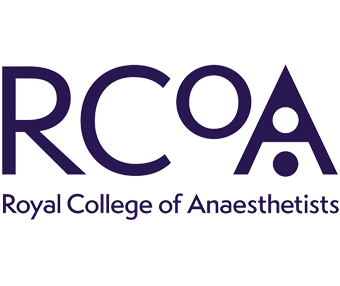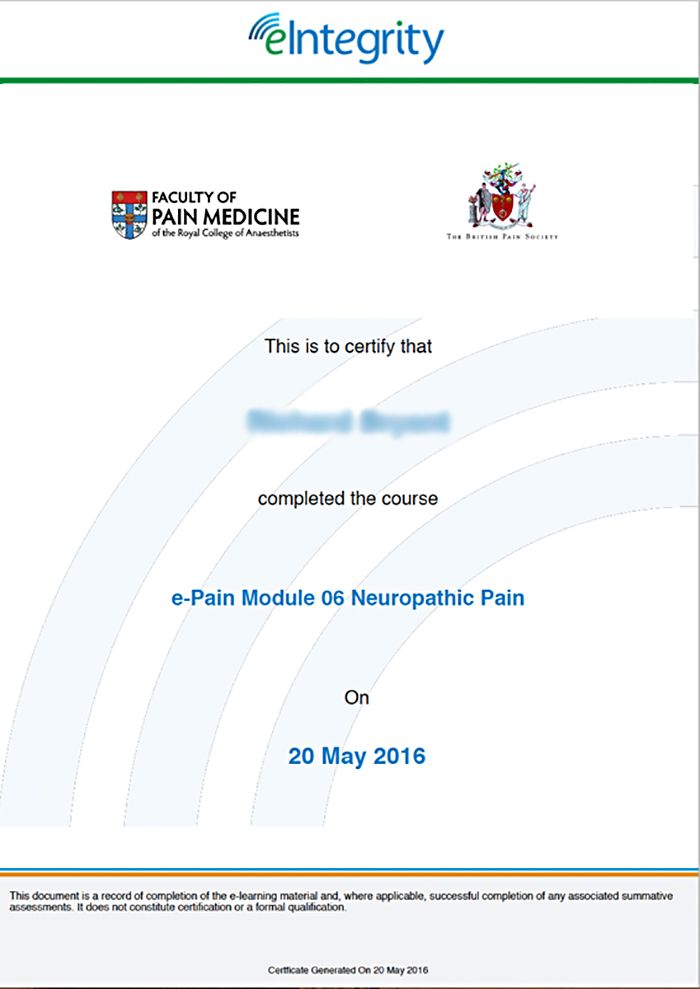

Course Features
- Equips you with the knowledge to assess and manage acute, chronic and cancer pain
- Highly interactive content with case studies, animations and questions
- Suitable for a wide range of healthcare professionals across the world
£95.00 Excludes VAT where applicable.
Multiple or multi-year licences are available, please contact us for details.
Contact UsAny questions? FAQ's
Pain Management Course
e-Pain is an online pain management course designed to help healthcare professionals diagnose and safely manage pain.
It is aimed at practitioners who are not pain specialists but who care for patients suffering from acute, chronic and cancer pain. The content is relevant globally.
High-quality Pain Management Course
This online course specifically enables you to:
- improve your recognition of unrelieved acute and chronic pain amongst patients
- provide appropriate assessment
- manage pain effectively
- ensure patient safety
Relevant to healthcare professionals globally
Using this online pain management course, you can explore the physical, psychological and social dimensions of pain.
The content is packed with interactive elements, including case studies, animations and self-assessment exercises, to embed learning and understanding.
e-Pain has been developed in the UK by the Faculty of Pain Medicine, of the Royal College of Anaesthetists, the British Pain Society and NHS England elearning for healthcare.
This programme is a versatile resource and our learners include hospital doctors, medical students, nurses, paramedics, clinical psychologists and primary care practitioners.
Hello, my name is Douglas Justins and I’d like to welcome you to this section of the eIntegrity website containing details of the e-pain elearning programme.
This programme delivers a comprehensive introduction to the practice of pain management. The content has been developed by the faculty of pain medicine of the Royal College of Anaesthetists and the British Pain Society and delivers over 70 learning sessions, each of which has a duration of 20 to 30 minutes.
You can learn at your own pace and the programme includes formative assessments with feedback to test your understanding of the content as you progress through the course.
Do have a look at the information about e-pain that is available on the website, where you’ll also find details of how to register. We do hope that you will join the many 1000’s of other healthcare professionals who have already signed up.





